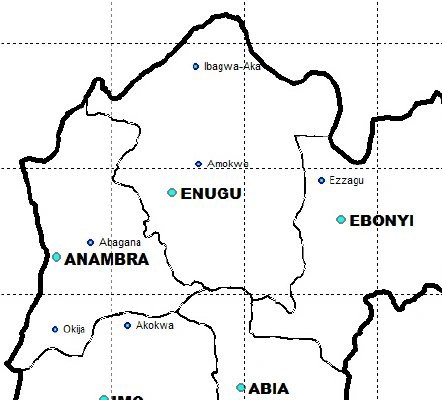Economy
Gas flaring: Our goal is to act, reduce & transform ~ Engr. Woke

The Director General and Chief Executive of the National Oil Spill Detection and Response Agency (NOSDRA), Engr. Chukwuemeka Woke, has underscored the importance of reducing gas flaring in Nigeria.
Engineer Woke stated this during his opening remarks at the third National Extractive Dialogue 2024 (Ned2024) held at Bon Hotel Elvis, 2 Monrovia St, Wuse 2, Wuse, Federal Capital Territory, Abuja, on July 24-25, 2024.
According to him, “The persistent practice of gas flaring has marred the breathtaking landscape of Nigeria’s abundant natural resources.
“It serves as a symbol of the missed prospects for harnessing energy, fostering economic growth, and preserving the environment.
“The well-documented environmental and health ramifications of gas flaring have far-reaching effects, deteriorating air quality, and public health while also aggravating the global climate crisis.
“Nevertheless, amidst this seemingly insurmountable challenge lies a remarkable opportunity for groundbreaking innovation, meaningful collaboration, and tangible progress.”
Speaking on the theme: “Gas Flare Reduction: Catalyst for Accelerating Nigeria’s path to Net-Zero Emissions and Sustainable development”, Woke added: “I am reminded of the profound responsibility that rests on our shoulders.”

National Oil Spill Detection and Response Agency (NOSDRA) DG, Chukwuemeka Woke wants gas flaring reduced in Nigeria
He stated further: “At this critical juncture in history, our nation must take decisive action.
“The decisions we make and the actions we take in forums like this will unequivocally shape the future of our environment, our economy, and the health and well-being of our people and our communities.
“Today, we are not simply discussing an environmental issue; we are confronting a fundamental challenge that profoundly impacts our national development and our global commitments.”
Excerpts
Excerpt of his remarks reads further: “In line with global climate change mitigation efforts and the Renewed Hope Agenda of President Bola Ahmed Tinubu, GCFR Administration’s commitment to end gas flaring, reduce methane emissions and enhance environmental sustainability in the country, the theme of our dialogue underscores the transformative potential of curbing gas flaring.
“It positions gas flare reduction not just as an environmental necessity but as a catalyst for broader sustainable development and a key driver towards our net-zero emissions goal.
“By tackling this issue head-on, we can unlock new pathways for energy efficiency, economic diversification, and community resilience which would in turn boost economic growth and job creation in line with Mr. President’s 8-point Agenda.”
NOSDRA DG takes responsibility
The NOSDRA DG further assured of government’s efforts to ensuring that the exploitation of natural resources won’t destroy the environment.
He continued: “As the Director General of the National Oil Spill Detection and Response Agency, I am acutely aware of the intricate link between environmental protection and sustainable development.
“Our agency is dedicated to ensuring that the exploitation of our natural resources does not come at the expense of our environment.
“The reduction of gas flaring is integral to this mission, aligning with our broader mandate to safeguard the environment from the adverse effects of oil and gas activities.
“Today’s dialogue brings together a diverse array of stakeholders-government officials, industry leaders, environmental advocates, and community representatives.
“Each of you brings valuable perspectives and expertise to this discussion.
“It is through our collective efforts and shared commitment that we can develop effective strategies and innovative solutions to significantly reduce gas flaring in Nigeria.
“I encourage us all to engage openly and constructively, to challenge assumptions, and to explore new ideas.
“Let us focus on actionable outcomes that can drive real change and progress. Our goal is not just to discuss but to act, to implement, and to transform.
“In closing, I want to express my gratitude to our co-organizer, the Nigerian Extractive Industries Transparency Initiative, and the funders of this event, the Ford Foundation through Space4Change, as well as the speakers and participants for your dedication and commitment to this important cause.
“Together, we can work towards reducing gas flaring and creating a sustainable and prosperous future for Nigeria.
“Thank you and I wish us all a productive and inspiring dialogue.”
What is Gas flaring?
According to the World Bank, gas flaring is the burning of the natural gas associated with oil extraction.
According to the report, the practice takes place due to a range of issues, from market and economic constraints, to a lack of appropriate regulation and political will.
Flaring and venting are a waste of a valuable natural resource that should either be used for productive purposes, such as generating power, or conserved.
For instance, the amount of gas currently flared each year – about 148 billion cubic meters – could power the whole of sub-Saharan Africa.
Why is gas flared?
Flaring persists to this day because it is a relatively safe, though wasteful and polluting, method of disposing of the associated gas that comes from oil production. Utilizing associated gas often requires economically viable markets for companies to make the investments necessary to capture, transport, process, and sell the gas.
Safety Reasons
Flaring may be required for safety reasons.
Extracting and processing oil and gas involves dealing with exceptionally high, and changeable, pressures.
During crude oil extraction, a sudden or dramatic increase in pressure could cause an explosion.
Industrial accidents involving oil and gas can result in destructive, dangerous, and long-lasting fires that are difficult to contain and control.
Gas flaring allows operators to de-pressurize their equipment and manage unpredictable and large pressure variations by burning any excess gas.
What are the environmental impacts of gas flaring?
Thousands of gas flares at oil production sites worldwide burned approximately 148 billion cubic meters of gas in 2023.
A flare combustion efficiency of 98% and a Global Warming Potential for methane of 25, each cubic meter of associated gas flared results in about 2.8 kilograms of CO2 equivalent emissions (CO2e).
This will, in turn, result in over 350 million tons of CO2 equivalent emissions annually.
The methane emissions resulting from the inefficiency of the flare combustion contribute significantly to global warming.
This is particularly so in the short to medium term.
According to the Intergovernmental Panel on Climate Change, methane is over 80 times more powerful than carbon dioxide as a warming gas on a 20-year timeframe.
On this basis, the annual CO2 equivalent emissions are increased by around 80 million tonnes.
For Diaspora Digital Media Updates click on Whatsapp, or Telegram. For eyewitness accounts/ reports/ articles, write to: citizenreports@diasporadigitalmedia.com. Follow us on X (Fomerly Twitter) or Facebook










